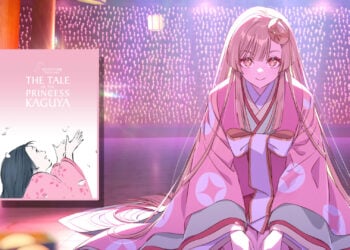Netflix’s latest Korean drama “Aema” has finally arrived, bringing viewers a provocative and satirical look at 1980s Korea’s film industry. Released exclusively on Netflix on August 22, 2025, this six-episode limited series tackles the controversial story behind Korea’s first mainstream erotic film while exposing the dark underbelly of show business.
Set against the backdrop of 1981 Korea, where the authoritarian regime loosened censorship laws to pacify discontented masses, Aema offers a bold commentary on power, corruption, and artistic freedom that feels remarkably relevant today.
Table of Contents
What Is Aema About?
In 1980s Korea, a movie star and a starlet defy male-dominated industry rules and backstage corruption while filming the provocative “Madame Aema”. The series follows the tumultuous production of what would become a landmark film in Korean cinema history.

The story centers around the clash between artistic vision and commercial exploitation, featuring strong female characters who refuse to be silenced by industry gatekeepers. The narrative follows Jeong Hee-Ran, a fiery actress cast in the lead role, and her conflicts with producer Ku Jung-Ho who will do anything to survive in the film industry.
Complete Release Information & Cast Details
| Release Details | Information |
|---|---|
| Release Date | August 22, 2025 |
| Episodes | 6 episodes |
| Runtime | 58 minutes per episode |
| Platform | Netflix (Exclusive) |
| Genre | Comedy, Drama, Historical |
| Rating | 18+ (Violence & Profanity) |
| MyDramaList Score | 7.6/10 |
Main Cast:
- Lee Ha-nee as the lead actress
- Jin Seon-kyu as Ku Jung-Ho, the ambitious producer
- Bang Hyo-rin as Shin Ju-ae, the aspiring nightclub worker turned actress
The series boasts impressive production values, with filming that began in 2023 and concluded in 2024, ensuring high-quality cinematography that captures the gritty atmosphere of 1980s Korea.
Why Aema Is Netflix’s Most Controversial K-Drama Yet
Unlike typical romantic K-dramas, Aema dives headfirst into uncomfortable truths about the entertainment industry. The series doesn’t shy away from depicting the sexism, exploitation, and moral compromises that plagued (and continue to plague) the film world.

Key Themes:
- Female Empowerment: Women fighting against industry sexism
- Artistic Integrity vs. Commercial Pressure: The eternal struggle between art and profit
- Historical Context: Korea’s transition period in the early 1980s
- Behind-the-Scenes Corruption: Exposing the dark side of filmmaking
The show’s willingness to tackle these mature themes head-on has earned it both critical acclaim and viewer controversy, making it one of Netflix’s most talked-about releases.
For more insights into Korean entertainment industry dynamics, check out our comprehensive guide to K-drama industry evolution.
Critical Reception and Audience Response
With a MyDramaList score of 7.6 scored by 740 users, Aema has garnered solid reviews for its bold storytelling and strong performances. Critics praise the series for its unflinching portrayal of industry corruption while maintaining dark comedic elements that keep viewers engaged.
The 18+ rating reflects the mature content and themes, making it clear that this isn’t your typical feel-good K-drama. Instead, it offers a sophisticated viewing experience for audiences interested in historical drama with contemporary relevance.

How Aema Fits Into Netflix’s Korean Content Strategy
Netflix’s investment in Aema demonstrates their commitment to diverse Korean storytelling beyond mainstream romantic comedies. The platform continues expanding its Korean content library with projects that push boundaries and explore complex social issues.
This satirical limited series joins Netflix’s growing collection of premium Korean productions, offering international audiences authentic glimpses into Korean culture and history through entertainment.
For more updates on Netflix’s Korean content releases, explore our latest streaming platform analysis.
The Real Story Behind “Madame Aema”
The fictional series draws inspiration from real events surrounding the production of “Madame Aema” (1982), which indeed became a controversial milestone in Korean cinema. The original film challenged censorship boundaries and sparked nationwide debates about artistic freedom and moral standards.
By reimagining this historical moment, Netflix’s Aema provides context for understanding how Korean society navigated changing social norms during a pivotal period in the country’s modern development.
What Makes Aema Stand Out
Authentic Period Detail: The production team invested heavily in recreating 1980s Seoul, from costumes to set design, ensuring historical accuracy.
Complex Characters: Rather than simple heroes and villains, Aema presents morally ambiguous characters whose motivations reflect real human complexity.
Social Commentary: The series uses its historical setting to comment on contemporary issues within the entertainment industry globally.
Aema represents Netflix’s bold commitment to authentic Korean storytelling, offering viewers a provocative and thought-provoking look at a pivotal moment in Korean cinema history. With its stellar cast and unflinching examination of industry corruption, this limited series is essential viewing for fans of sophisticated historical drama.
Frequently Asked Questions
Q: Is Aema based on a true story?
A: While Aema is a fictional drama, it’s inspired by real events surrounding the production of “Madame Aema” (1982), Korea’s first mainstream erotic film. The series takes creative liberties with the actual events to create a compelling narrative about the challenges faced during the film’s production. The show uses this historical context to explore broader themes about artistic freedom and industry corruption in 1980s Korea.
Q: Is Aema suitable for all audiences, and why does it have an 18+ rating?
A: No, Aema is rated 18+ due to its mature themes, including depictions of industry corruption, violence, and profanity. The series deals with adult themes surrounding the production of an erotic film and doesn’t shy away from showing the darker aspects of the entertainment industry. It’s specifically designed for mature audiences who can appreciate its sophisticated commentary on power dynamics and social issues.








